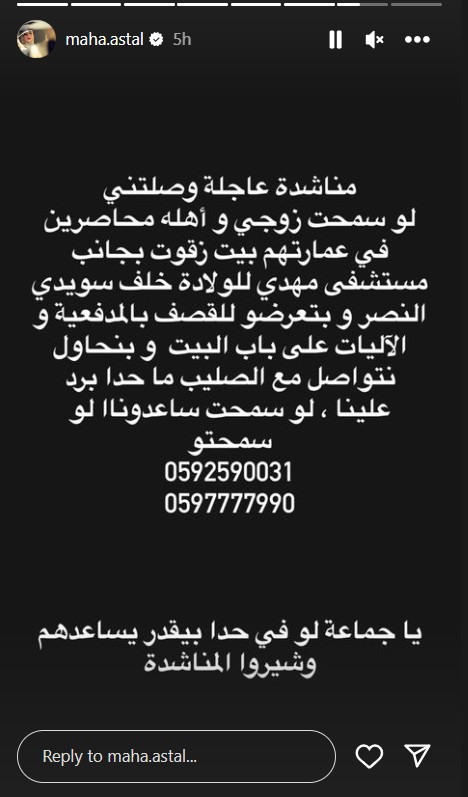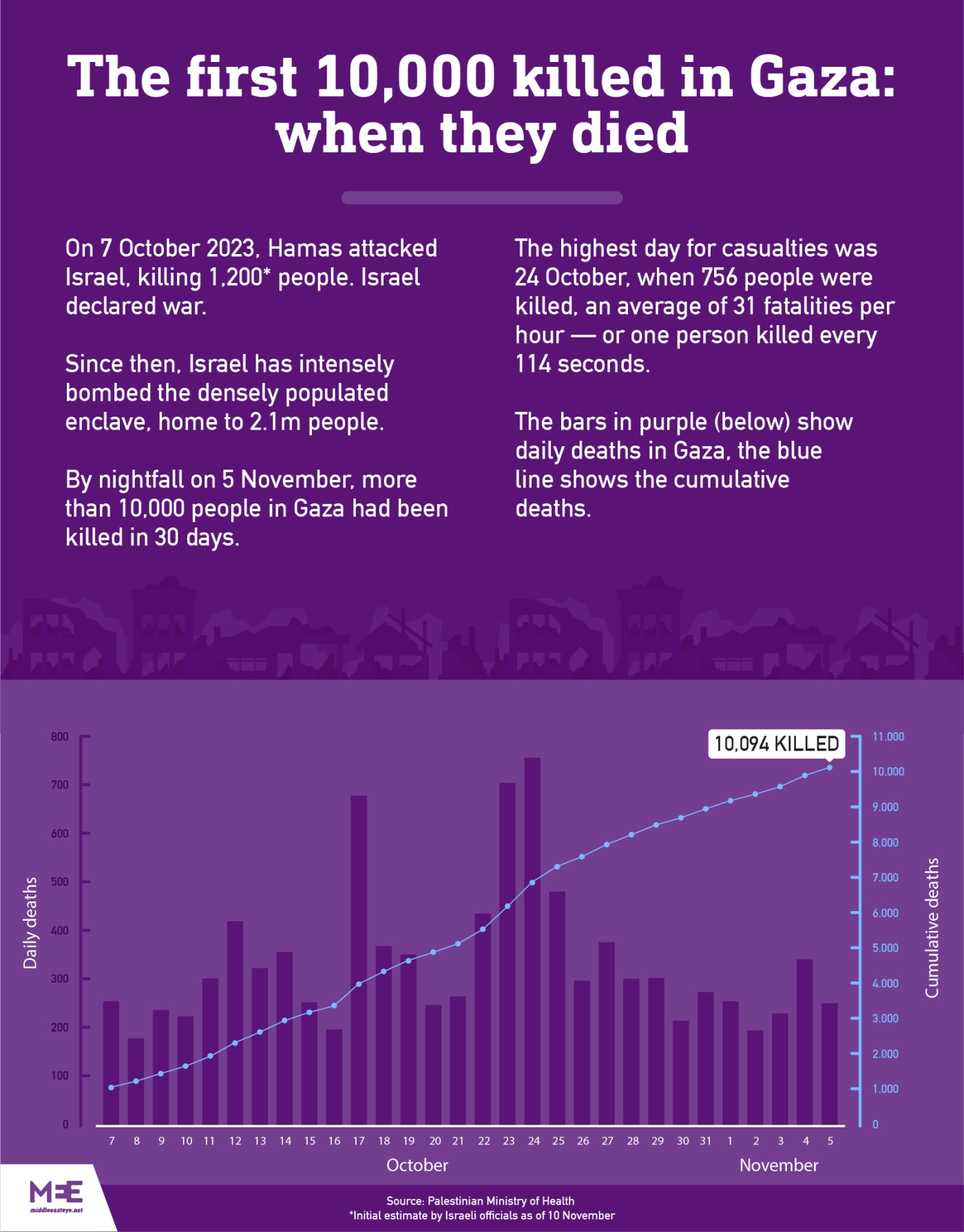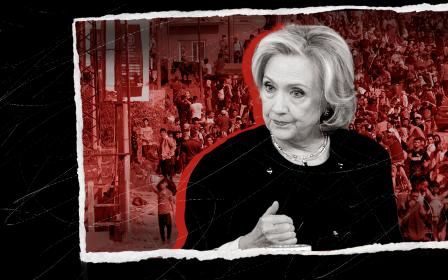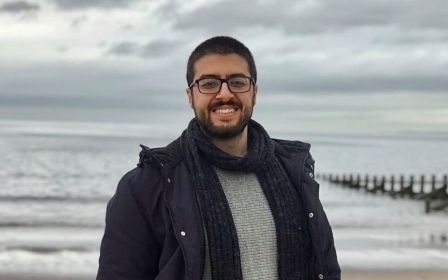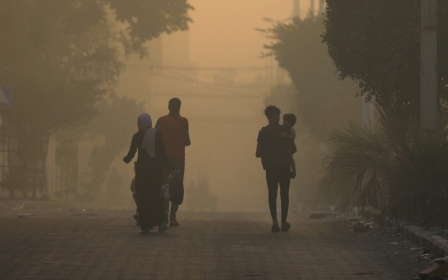Israel-Palestine war: Palestinians turn to social media for news about loved ones amid blackout
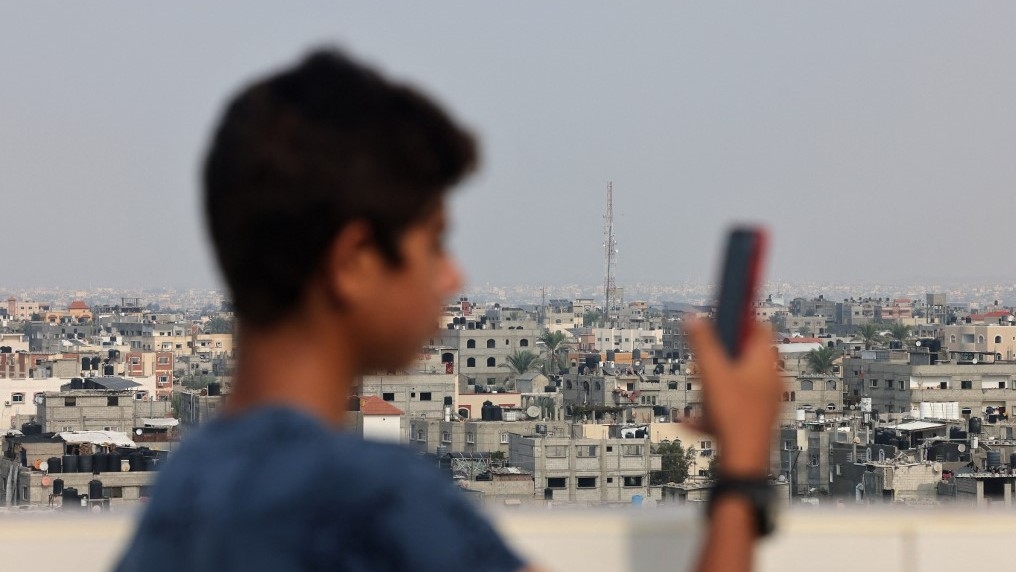
Gaza photographer Maha al-Astal is inundated with pleas from people whose loved ones in Gaza are missing or feared killed in Israeli air strikes.
"They implore me and others with a large social media following to relay their messages to those who remain in northern Gaza to join the rescue efforts," she told Middle East Eye.
"They send us desperate requests to share their stories on social media platforms."
In the midst of intense Israeli air strikes, the disruption of mobile networks and the severe reduction of telecommunications signals along the primary routes, as reported by Palestinian telecoms provider Paltel multiple times during October and November, have undermined rescue efforts in Gaza.
Samir al-Khatib, the deputy director of Gaza's civil defence, told MEE that the interruption of telecommunication services has disconnected them from those seeking help.
New MEE newsletter: Jerusalem Dispatch
Sign up to get the latest insights and analysis on Israel-Palestine, alongside Turkey Unpacked and other MEE newsletters
The previously available free hotline (102) for the civil defence has been halted, he said. As a result, they now have to rely on hearing explosions from various locations to determine where to respond.
Additionally, they depend on pleas from individuals who approach them and provide specific location information.
"Fast communication during bombings plays a vital role in saving the victims, but Israel has halted it,” he said.
Al-Astal, who has 90,000 followers on Instagram, is among many Palestinian social media users and influencers who are frequently approached by those seeking to locate missing people in the densely populated Gaza Strip, which has been under daily bombardment for 38 days, with most casualties killed in bombardments of homes, hospitals and other civilian infrastructure.
Maha feels she has a duty to relay these voices, utilising her wide reach.
“I wish I could do anything else. I pray for their safety,” she said.
In one Instagram post, she published a call for help by a Palestinian woman who said her husband and his family were trapped in a residential building that was under Israeli air strikes and was being besieged by tanks. According to the woman, they contacted the International Committee of the Red Cross (ICRC) officials but had not received a response.
Likewise, Noor Swirki, a local journalist now based in Khan Younis in southern Gaza after leaving the north with her family, has also been sharing numerous appeals from individuals in distress.
One of the pleas was regarding her cousin who went missing in Gaza. "I don't know what happened to him. I shared his story. The last information we have is that he went outside in search of clean water for his brother, who is suffering from kidney failure," she said.
She added that in addition to social media, people often direct their pleas to the International Red Crescent Committee, whom they believe to be responsible or present in the region.
Helpless civilians
Those based abroad are also joining efforts to amplify the calls for help on their social media pages.
Palestinian social media user, Dima Khayal, a sales and marketing professional based in Turkey with more than 13,000 followers, said she receives many messages on Facebook asking for help. Most of her followers are from Gaza, she said.
"I received dozens of pleas every day," she said.
"Regrettably, within the plethora of published appeals, few receive any help from ICRC or civil defence or ambulance services," she told MEE.
"It's almost impossible to reach the bombed areas. Everyone keeps telling me the situation is dire,” she added.
Prior to the war, the 32-year-old Khayal managed a Facebook group with over 200,000 subscribers from the Gaza Strip, focusing on providing information and guidance to travellers, whether they are departing from or returning to Gaza.
“We used to assist Gaza students in expediting their departure from the Gaza Strip by communicating with the crossing authorities. We used to bring those unavailable medications from Egypt to Gaza.
"Now, the group is filled with pleas for people trapped under rubble and pleas for humanitarian assistance.”
There are people who live on Al-Wahda Street near the Palestine and Al-Wahda intersection, and they are trapped at Shehab Building, Hassouna Building, and Mushtahi Building. They appealed to the Red Cross and the Red Crescent to go to them because their situation is tragic. There are more than 250 people in two buildings, and there are residents in the area lost, and there are martyrs and injuries in the streets, according to what they told me. They saw them, and there was very, very heavy shooting, and the situation is dangerous.
International Red Cross🔻🔻
Palestinian Red Crescent🔻🔻
Contact number
While Khayal lives in Turkey along with her mother and sister, many of her uncles and extended relatives are still in northern Gaza where the fiercest ground battles and bombardment are taking place.
“I would like to help them, I would like to make their voices heard, but unfortunately we cannot do anything in this situation,” she told MEE.
“Of course, it is a very difficult feeling. Imagine that I received a plea that there were more than seven families bombed in Rimal neighbourhood, and no one was able to help them; an elderly woman who was killed in the same area, and a girl who was wounded and bled to death in the street," she recalled.
Yara Eid, a Palestinian journalist based in the UK, has also been sharing similar pleas.
On Saturday, as Israeli forces besieged al-Shifa hospital in the northern part of Gaza, she posted on X calling for help for her friend and his family of 13 people stranded in the fighting.
"I am calling the internaitonal community, please do something," she said, tearfully. "My friend and his family are stuck ... next to a house that got bombed. They're unable to move. The [Israeli] tanks are there. They're unable to do anything. They're civilians; they're innocent; 13 people with their children. Their dad got a stroke and they cannot move. Please guys share this, please, please."
Aya Abu Habel was among those who used social media to look for missing family.
When an Israeli air strike hit a home where her husband, Ahmed, was sheltering in Gaza City, on 25 October, she took to Facebook to post a plea for help to locate her husband, but it was too late.
When civil defence services and firefighters arrived at the scene, they were able to rescue a few people from the rubble, she said. But then they had to move to another bombed area to assist with rescue efforts there as the survival rates were expected to be higher.
Her father-in-law rushed to the scene to try to excavate the body of his son.
“There is no hope now. The Israeli rocket levelled the tower,” he told MEE.
Middle East Eye delivers independent and unrivalled coverage and analysis of the Middle East, North Africa and beyond. To learn more about republishing this content and the associated fees, please fill out this form. More about MEE can be found here.


